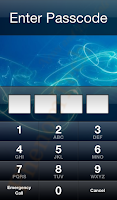Security and passwords are generally very important for corporations and companies. However, recent survey shows that 85% of phones belonging to corporations carry horrible passwords from a security stand point.
The modern smartphones are extremely capable devices and we use them to access and store an increasing amount of sensitive work and personal information. Usually, the only layer of protection between the user and a potential intruder is a password or passcode on the lock screen of the device.
A recent survey by Chief Security Officer shows some horrifying facts about the security of the corporate phones being used by the employees. The survey shows that while 85% of the phones do have password protection enabled, 93% of the phones, however, used passwords or passcodes that were of the simplest possible forms. This means passwords that are solely composed of numerals or letters. What is worse is that 73% also used extremely short passwords which are only 4-5 characters long.
For corporations that issue phones to their employees that the employees use in the personal life, it is surprising that not more emphasis has been placed on enacting proper security policies to make the employees use more secure protections. This is often motivated by the fact that inputting longer or more complex passwords is impractical on a touch screen phone. However, it is really not that much harder to input a 8 character long password compared to 4 character long password.
Hopefully, in the future, biometrics will enter the scene and finally make it easy for everyone to enact a secure protection for their phones without having to fiddle around with long passwords. After all, considering the commonly published password lists of the worst passwords, and emphasis placed on corporation computers that require high security using various solutions when passwords alone are not enough, it is surprising that security on corporate phones are so often overlooked.


No comments:
Post a Comment